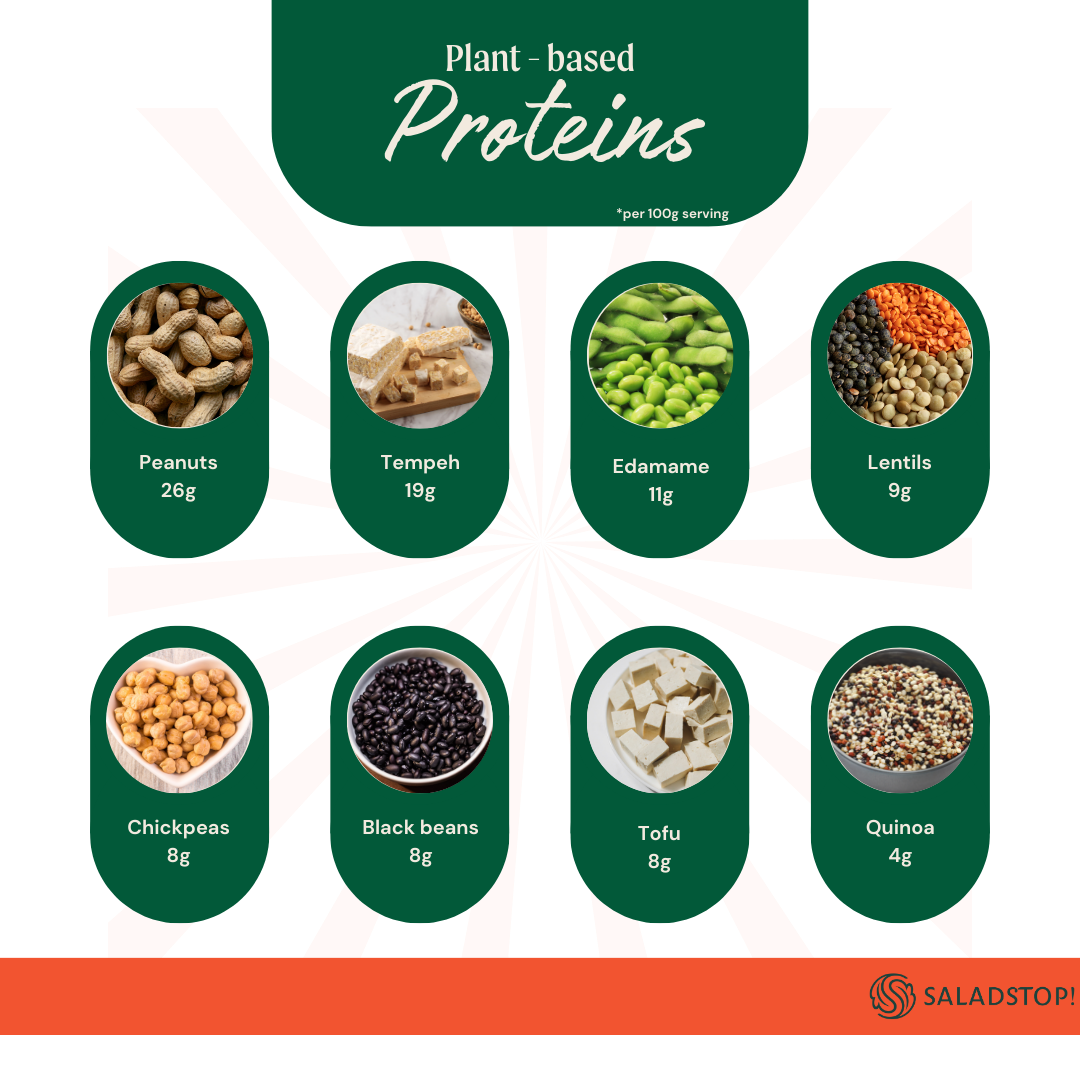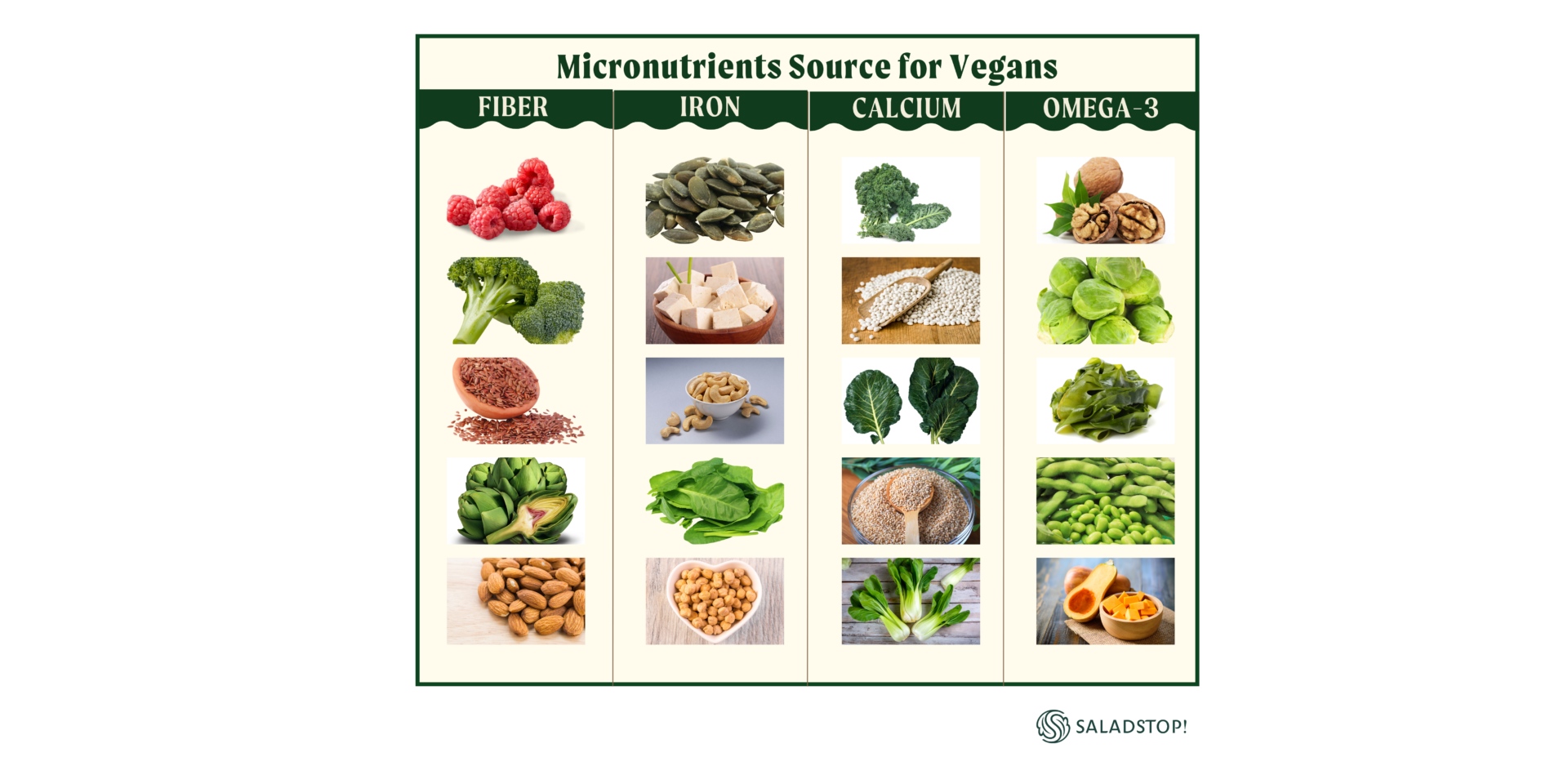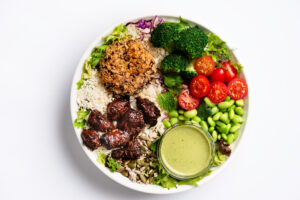Embarking on a vegan diet for weight loss is a popular choice for many individuals seeking a healthier and more sustainable lifestyle. Some may wonder whether it’s possible to meet their protein needs while staying within their calorie limits on a plant-based diet. Good news are: it’s entirely possible to achieve your protein goals while losing weight on a vegan diet. In this article, we’ll explore the intricacies of balancing calories and protein intake on a vegan diet and highlight specific micronutrients necessary for successful weight loss.
Plant-Based Protein: The Caloric Challenge
Plant-based protein sources like legumes, tofu, tempeh, nuts, and seeds are calorically denser than their animal-based counterparts. This means that, per gram of protein, you may be consuming more calories. However, this doesn’t make weight loss on a vegan diet impossible; it simply requires mindful planning and portion control.
Here are some strategies to balance calories and protein intake on a vegan diet:
1. Portion Control
Portion control is a key strategy for managing calorie intake while meeting your protein needs on a vegan diet. Here’s a closer look at portion control with examples:
- Nuts: Nuts are a great source of plant-based protein, but they can be calorie-dense. For example, almonds have approximately 579 calories per 100 grams. To control portions, consider using a small handful (about 1 ounce or 28 grams) as a snack or ingredient in your meals.
- Nut Butter: Nut butter, such as almond or peanut butter, can be delicious but calorie-packed. A 2-tablespoon (32-gram) serving of almond butter provides around 196 calories. Use a measuring spoon to ensure you’re not overdoing it.
- Tofu: Tofu is a versatile plant-based protein with around 145 calories per 100 grams. You can control portions by using a kitchen scale to weigh your tofu or by dividing a standard block into smaller servings.
- Tempeh: Tempeh, another soy-based protein, offers about 193 calories per 100 grams. One standard serving is typically 85-100 grams, making it easier to manage calorie intake.
2. Incorporate Lower-Calorie Options
When aiming for weight loss on a vegan diet, it’s helpful to incorporate lower-calorie plant-based protein sources, which allow you to enjoy larger portions without exceeding your calorie goals. Here are some examples:
- Legumes: Legumes like lentils (116 calories/100g), chickpeas (164 calories/100g), and black beans (132 calories/100g) provide a good balance of protein and fiber. These options can help you feel full while keeping calorie intake in check.
- Seitan: Seitan is a protein-rich meat substitute with approximately 370 calories per 100 grams. While it has more calories, it’s very protein-dense and can be used in small quantities to boost protein content in dishes.
- Leafy Greens: Leafy greens like spinach (23 calories/100g) and kale (49 calories/100g) are not protein powerhouses on their own but can be combined with other protein sources to create low-calorie, nutrient-rich meals.
- Mushrooms: Mushrooms are a unique source of plant-based protein, offering around 22-42 calories per 100 grams, depending on the type. They can be used to add texture and flavor to dishes without significantly impacting calorie intake.
3. Opt for Whole Foods
Whole plant foods like beans, lentils, and whole grains not only provide protein but also essential nutrients, fiber, and a feeling of fullness. These foods can help you control your calorie intake while meeting your protein needs.
4. Consider Plant-Based Ready-To-Heat Meals
These freshly made and convenient meal options are not only time-saving but also packed with plant-based protein. GFP meals offer the perfect solution for individuals looking to maintain a vegan or vegetarian diet while enjoying the convenience of pre-prepared meals. These dishes are carefully crafted to provide you with a balanced and delicious plant-based protein source, ensuring that you meet your nutritional needs without sacrificing taste or quality.

Micronutrients for Weight Loss on a Vegan Diet
In addition to protein, several essential micronutrients play a crucial role in successful weight loss on a vegan diet. Here’s why each of these micronutrients is important for weight loss:
1. Fiber
Fiber is abundant in plant-based foods and is essential for promoting satiety and regulating blood sugar levels. High-fiber foods like vegetables, whole grains, and legumes should be a staple in your vegan weight loss plan. They help you feel full for longer, reducing the likelihood of overeating.
2. Iron
Iron is important for maintaining energy levels and overall health. Plant-based sources of iron, such as beans, lentils, fortified cereals, and spinach, are readily available to vegans. Iron deficiency can lead to fatigue, which can hinder your ability to stay active and engage in weight loss activities.
3. Calcium
Calcium is crucial for bone health, muscle function, and nerve transmission. While dairy is a common source of calcium, vegans can obtain this essential mineral from fortified plant-based milk, leafy greens (e.g., kale, collard greens), and calcium-set tofu. Ensuring you get enough calcium supports overall health during weight loss.
4. Omega-3 Fatty Acids
Omega-3 fatty acids play a role in reducing inflammation and supporting heart health. Incorporate sources of alpha-linolenic acid (ALA), such as flaxseeds, chia seeds, and walnuts, to meet your omega-3 requirements. Consider algae-based supplements for long-chain omega-3s like EPA and DHA. Omega-3s can aid in reducing inflammation, which can be beneficial for weight loss.

Conclusion
Weight loss on a vegan diet is achievable by carefully balancing calorie intake and protein consumption. Practicing portion control, choosing lower-calorie options, and incorporating a variety of whole plant foods can help you meet your protein goals while shedding pounds. Additionally, don’t forget to pay attention to key micronutrients like fiber, iron, calcium, vitamin B12, and omega-3 fatty acids to ensure you maintain a balanced and healthy vegan diet while working towards your weight loss goals. These micronutrients play critical roles in maintaining energy levels, promoting satiety, and supporting overall health, making them essential components of your weight loss journey on a vegan diet.
A vegan diet can be a successful and sustainable path to weight loss and improved overall health.

Disclaimer:
At SaladStop! Group, our commitment is to empower every individual with reliable, evidence-based nutritional and wellness guidance. To earn your trust as your ultimate resource for nutritional information, our content undergoes rigorous nutritional scrutiny to ensure its accuracy, whether it’s about our offerings, culinary creations, or services. Please note that all information provided is for informational purposes only and should not be considered a substitute for professional medical or nutritional advice.




